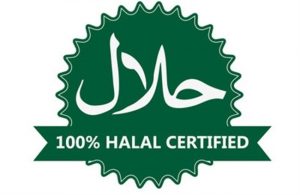The issue of Halal and Haram (permissible and forbidden) has been discussed and underlined in all divine religions. The objects of Halal and Haram have been discussed and expressed in Islam on the basis of strong, clear and wide principles in the Qur’an and Sunnah. The masterful Islamic jurists have described the details accumulating them in our treasures of juridical heritage.
By the spread of Muslims’ migration to the West and countries with non-Muslim majorities, as well industrialization of people’s life and production of more food commodities in factories on the other side, numerous difficulties emerged in the area of food. As a result, there was a strong need to manufactures which should be produced by legal supervision and watching the process of production carefully.
For the first time, consumption of productions with the sign/certification of Halal, as a socio-economic phenomenon, emerged in the West. In the same time when the industry of Halal was growing in the West, Muslim states in the southeast of Asia also paid serious and purposeful attention to the factor of Halal. Due to dynamic economies, the widespread consuming markets and existence of religious diversity and social factors the Halal industry developed in these regions quickly by the official support. The Southeast Asia became the global hub of the Halal industry.
The foundation of the Halal industry was with food productions and this is still the most important and the biggest area in the Halal industry. After the region of food, the industries of Halal medicines, cosmetics and healthcare products are the widest and most important areas in the Halal industry.
The Halal industry has an indisputable importance in the Islamic economy as a wide industry with considerable income. It is the second largest region in the Islamic economy after the Islamic financial market.
It is noteworthy the Halal market is not limited to Muslim consumers; there are many non-Muslims who prefer Halal food – regardless to their religious and social tenets and creeds- because of health factors. Tendency to the moral diet among non-Muslims is another reason that they prefer Halal food.
The latest economic report of Thomson Reuters suggests that the United Arab Emirates, Australia, Pakistan, Brazil and Malaysia are the superior countries according to the Halal food indexes. As well as, in the area of the pharmaceutical industry and Halal cosmetics the UAE, Malaysia, Singapore, Egypt and Pakistan have been on the top.
The Halal industry, as a newfangled and flourishing region in the world economy, faces various challenges to advance and maintain its activity. Multiplicity of adopted standards for issuing Halal certification is one of the most important challenges before the Halal industry. Despite formulation of international standards such as “General Guidelines on Halal Food” by the Organization of Islamic Cooperation (OIC), different organizations use their own national standards in Muslim countries. In non-Muslim countries also different tendencies can be found as Muslims follow different schools of thought and juridical regions. This discord in standards has created some problems to a large level causing emergence of some obstacles and contentions in exports and imports between Muslim and non-Muslim countries.
Halal-phobia is another challenge before the Halal industry in some non-Muslim countries. Non-Muslim consumers have welcomed warmly Halal food; despite it some European countries have a hostile attitude towards Zabihah (slaughtered according to Islamic rites) and even kosher (foods or animals produced or slaughtered according to Jewish law). The decision of regional parliaments in Belgium to ban Islamic slaughter in the current year and continuous campaigning to boycott Halal foods in Europe are some steps in this approach.
The last point is that the development and advancement of the Halal industry does not depend only on official and governmental activities; rather the level of public awareness about the legal necessities, the facts of the market and boosting the demand of consumers should be improved. Boosting the demand of consumers has a key and determinative role in industries and finally forces producers to consider the Islamic rites in standards and supplying pure, Halal and high quality goods. In the process of spreading awareness and information and propagating the culture of using certified Halal products, all should take part including authorities, Ulama, religious leaders and researchers adopting their all social and media outlets.










Comments